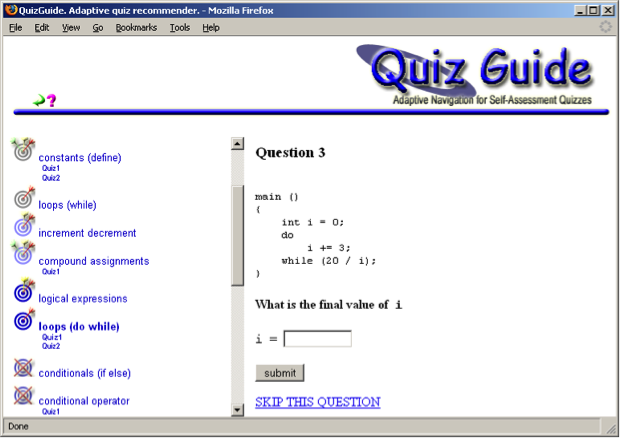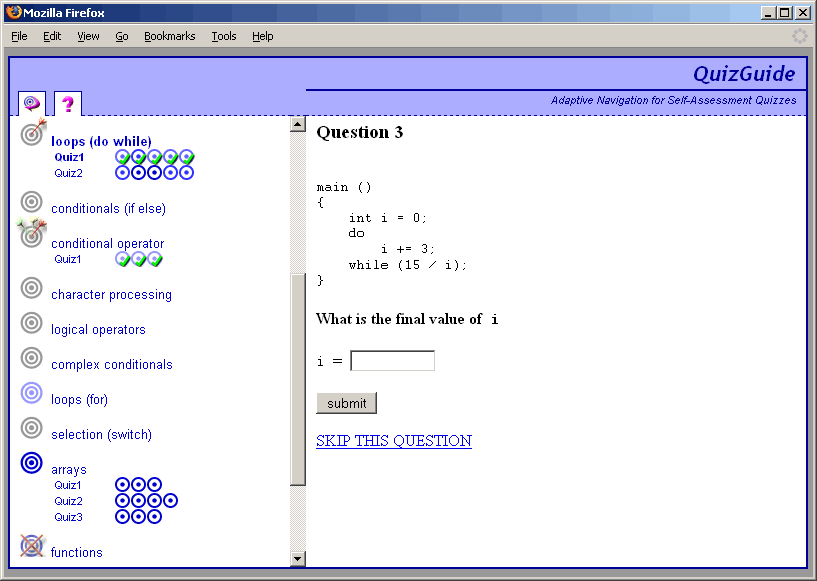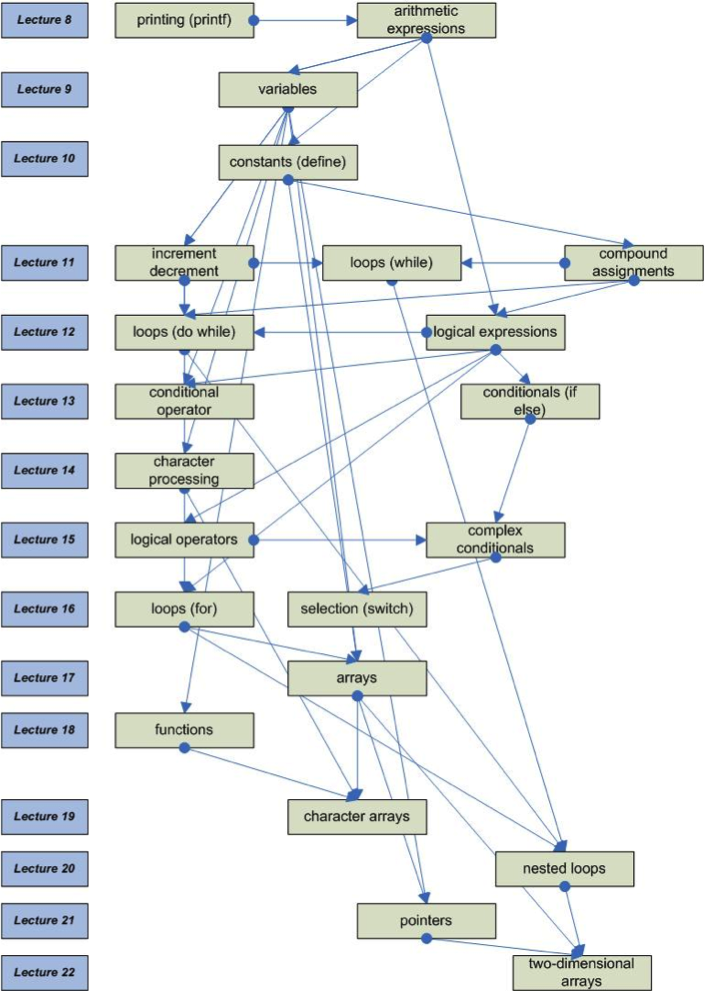QuizGuide
Contents
About QuizGuide
QuizGuide (Brusilovsky et al., 2004), an adaptive front-end to a collection of interactive self-assessment questions in the domain of C programming. The domain model in QuizGuide is formed by 22 topics such as variables, constants or character processing (Figure 3a). The system is able to model learner knowledge independently by topic and visualize the state of this learner model through adaptive annotation of link using the “target-arrow” icons (Figure 1). The number of arrows in the target reflects the level of knowledge the student has acquired on the topic: the more arrows the target has, the higher the level of knowledge. The intensity of the target’s color shows the relevance of the topic to the current learning goal: the more intense the color is, the more relevant the topic. This interface combined successful features of open learner models and navigation support: it provides a clear presentation of student knowledge by topic while also helping the student to select the optimal topic to work (one that is ready to be explored, but still not mastered).
Despite a relatively simple adaptation approach, the navigation support provided by QuizGuide resulted in a remarkable impact on student performance and motivation to work with the system. In comparison with QuizPACK (Brusilovsky & Sosnovsky, 2005b), an earlier version of the system which provided access to the same quizzes with no navigation support, the average knowledge gain (a difference between post-test and pre-test results on a 10-point test) for the students using QuizGuide increased from 5.1 to 6.5. By guiding students to the right topics at the right time, the system caused a significant increase in the percentage of correctly answered questions from 35.6% to 44.3% (Brusilovsky & Sosnovsky, 2005a). Most remarkable, however, was an increase in the students’ interest in working with the system. The number of attempts, the percentage of students using the system actively, and the percentage of attempted topics increased significantly (Brusilovsky & Sosnovsky, 2005a). A re-implementation of QuizGuide’s adaptive navigation support approach in SQLGuide for SQL (Sosnovsky et al., 2008) and JavaGuide for Java programming (Hsiao et al., 2009) confirmed this impact in two other domains.
The first version of QuizGuide offered navigation support on the level of topics only. as a result, it provided no support for selecting a specific problem within a topic - all of them were identical from the prospect of the system (i.e., all could contribute to the student knowledge of the topic). To address this problem, we added concept-level student modeling to the system using C programming ontology developed by our group. The ability to track student knowledge on the concept level allowed QuizGuide to provide independent navigation support for every problem offering students an estimation of how much knowledge about the concepts engaged in the problem has already been obtained.
Publications
- Brusilovsky, P., Sosnovsky, S., and Shcherbinina, O. (2004) QuizGuide: Increasing the Educational Value of Individualized Self-Assessment Quizzes with Adaptive Navigation Support. In: J. Nall and R. Robson (eds.) Proceedings of World Conference on E-Learning, E-Learn 2004, Washington, DC, USA, November 1-5, 2004, AACE, pp. 1806-1813, also available at [1].
- Brusilovsky, P. and Sosnovsky, S. (2005) Engaging students to work with self-assessment questions: A study of two approaches. In: Proceedings of 10th Annual Conference on Innovation and Technology in Computer Science Education, ITiCSE'2005, Monte de Caparica, Portugal, June 27-29, 2005, ACM Press, pp. 251-255, also available at [2].
- Sosnovsky, S. and Brusilovsky, P. (2015) Evaluation of Topic-based Adaptation and Student Modeling in QuizGuide. User Modeling and User-Adapted Interaction 25 (4), 371-424.



